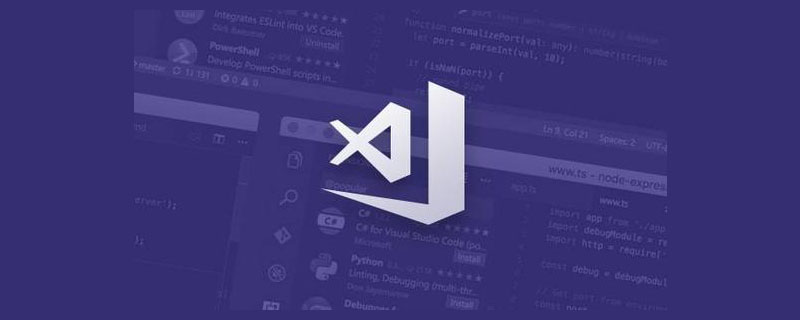 Backend Development
Backend Development PHP Tutorial
PHP Tutorial How to avoid URL encoding and decoding errors in PHP language development?
How to avoid URL encoding and decoding errors in PHP language development?In PHP language development, URL encoding and decoding are very common requirements. In this process, encoding and decoding errors often occur. These errors can lead to program errors, data loss, and even security vulnerabilities. In order to avoid these problems, we need to pay attention to the following points during the development process.
- Understand the principles of URL encoding and decoding
In URLs, certain characters (such as spaces, #, %, etc.) are not allowed to appear. Therefore, we need to encode these characters so that they can be transmitted correctly in the URL. Among them, the most commonly used encoding method is percent encoding (Percent Encoding), which converts characters into % followed by two hexadecimal numbers corresponding to the ASCII code. For example, the encoding of spaces is .
In PHP, we can use the urlencode() function to URL encode a string and the urldecode() function to decode the URL.
- Determine the encoding method
When encoding and decoding URLs, we need to determine the encoding method used. In the HTTP standard, the default encoding is UTF-8. Therefore, in PHP, we can use the urlencode()/urldecode() function or the rawurlencode()/rawurldecode() function to encode and decode.
The urlencode()/urldecode() function will convert the numbers in the encoded string into spaces (because spaces are not allowed to appear in URLs), while the rawurlencode()/rawurldecode() function will Won't.
For example, the result of using the urlencode() function to encode "hello world" is "hello world", and the result of using the rawurlencode() function is "hello world".
Therefore, during development, we need to determine which encoding method to use based on the actual situation. Normally, we should choose the urlencode()/urldecode() function.
- Handling special characters
When encoding and decoding URLs, pay attention to handling some special characters. For example, the characters "/" and "." have special meanings in URLs. If these characters exist in the URL, it may affect the correct parsing of the URL.
When using urlencode() for URL encoding, "/" will be encoded as "/", but "." will not be encoded. Therefore, when using "/" in the URL, it is recommended to use the rawurlencode() function to encode "/" as "/" to ensure that the URL can be parsed correctly.
- Avoid security vulnerabilities
There are some security vulnerabilities that you need to pay attention to when encoding and decoding URLs. For example, if unsafe characters are used in URL encoding, it may lead to security issues such as cross-site scripting attacks (XSS) or SQL injection.
In order to avoid these security issues, we should filter and verify user input data. For unsafe characters, you can use the htmlspecialchars() function to escape them to avoid XSS attacks. For SQL injection, you should use the parameterized query method provided by libraries such as PDO or mysqli to avoid it.
Summary
URL encoding and decoding is a very common requirement in PHP development. When encoding and decoding, you need to understand its principles, determine the encoding method, handle special characters, and avoid security holes and other issues. Only in this way can the URL encoding and decoding functions be successfully implemented in PHP development and the security and stability of the program can be guaranteed.
The above is the detailed content of How to avoid URL encoding and decoding errors in PHP language development?. For more information, please follow other related articles on the PHP Chinese website!
 微信小程序中PHP开发的翻页特效实现方法Jun 01, 2023 pm 01:51 PM
微信小程序中PHP开发的翻页特效实现方法Jun 01, 2023 pm 01:51 PM在微信小程序中,PHP开发的翻页特效是非常常见的功能。通过这种特效,用户可以轻松地在不同的页面之间进行切换,浏览更多的内容。在本文中,我们将介绍如何使用PHP来实现微信小程序中的翻页特效。我们将会讲解一些基本的PHP知识和技巧,以及一些实际的代码示例。理解基本的PHP语言知识在PHP中,我们经常会用到IF/ELSE语句、循环结构,以及函数等一些基本语言知识。
 微信小程序中PHP开发的常用工具库介绍Jun 01, 2023 pm 07:40 PM
微信小程序中PHP开发的常用工具库介绍Jun 01, 2023 pm 07:40 PM随着微信小程序的普及和发展,越来越多的开发者开始涉足其中。而PHP作为一种后端技术的代表,也在小程序中得到了广泛的运用。在小程序的开发中,PHP常用工具库也是很重要的一个部分。本文将介绍几款比较实用的PHP常用工具库,供大家参考。一、EasyWeChatEasyWeChat是一个开源的微信开发工具库,用于快速开发微信应用。它提供了一些常用的微信接口,如微信公
 如何利用PHP开发商城的满额赠礼功能May 22, 2023 am 10:02 AM
如何利用PHP开发商城的满额赠礼功能May 22, 2023 am 10:02 AM网上购物已经成为人们日常生活中不可或缺的一部分,因此,越来越多的企业开始关注电商领域。开发一款实用、易用的商城网站也成为了企业提高销售额、拓展市场的必要手段之一。在商城网站中,满额赠礼功能是提高用户购买欲望和促进销售增长的重要功能之一。本文将探讨如何利用PHP开发商城的满额赠礼功能。一、满额赠礼功能的实现思路在商城开发中,如何实现满额赠礼功能呢?简单来说就是
 微信小程序中PHP开发的加密和解密实现方法Jun 01, 2023 am 08:12 AM
微信小程序中PHP开发的加密和解密实现方法Jun 01, 2023 am 08:12 AM随着微信小程序在移动应用市场中越来越流行,它的开发也受到越来越多的关注。在小程序中,PHP作为一种常用的后端语言,经常用于处理敏感数据的加密和解密。本文将介绍在微信小程序中如何使用PHP实现加密和解密。一、什么是加密和解密?加密是将敏感数据转换为不可读的形式,以确保数据在传输过程中不被窃取或篡改。解密是将加密数据还原为原始数据。在小程序中,加密和解密通常包括
 PHP开发中提供效率的VSCode插件推荐(值得收藏)Mar 30, 2021 pm 07:31 PM
PHP开发中提供效率的VSCode插件推荐(值得收藏)Mar 30, 2021 pm 07:31 PM本篇文章给大家推荐一些VSCode+PHP开发中实用的插件。有一定的参考价值,有需要的朋友可以参考一下,希望对大家有所帮助。
 微信小程序中PHP开发的滑动验证码实现方式Jun 01, 2023 pm 09:01 PM
微信小程序中PHP开发的滑动验证码实现方式Jun 01, 2023 pm 09:01 PM随着互联网的快速发展,网络安全问题也变得越来越严峻。针对恶意攻击、刷单等安全威胁,很多网站和应用程序都使用了验证码来保护用户信息和系统安全。在微信小程序中,如何实现一个安全可靠的滑动验证码呢?本文将介绍使用PHP开发的滑动验证码实现方式。一、滑动验证码的原理滑动验证码是指在验证用户身份时,通过用户在滑块上滑动完成验证过程。其原理是将一张图片分成两部分,一部分
 微信小程序中PHP开发的自动更新方法Jun 01, 2023 pm 11:40 PM
微信小程序中PHP开发的自动更新方法Jun 01, 2023 pm 11:40 PM近年来,移动互联网的快速发展和移动终端的普及,让微信应用程序成为了人们生活中不可或缺的一部分。而在微信应用程序中,小程序更是以其轻量、快速、便捷的特点受到了广泛的欢迎。但是,对于小程序中的数据更新问题,却成为了一个比较头疼的问题。为了解决这一问题,我们可以使用PHP开发的自动更新方法来实现自动化数据更新。本篇文章就来探讨一下微信小程序中PHP开发的自动更新方
 微信小程序中PHP开发的文本框自动完成功能实现方法Jun 01, 2023 pm 07:42 PM
微信小程序中PHP开发的文本框自动完成功能实现方法Jun 01, 2023 pm 07:42 PM随着微信小程序的普及,各类开发需求也日渐增多。其中,文本框自动完成功能是小程序中常用的功能之一。虽然微信小程序提供了一些原生的组件,但是有一些特殊需求还是需要进行二次开发。本文将介绍如何使用PHP语言实现微信小程序中文本框自动完成功能。准备工作在开始开发之前,需要准备一些基本的环境和工具。首先,需要安装好PHP环境。其次,需要在微信小程序后台获取到自己的Ap


Hot AI Tools

Undresser.AI Undress
AI-powered app for creating realistic nude photos

AI Clothes Remover
Online AI tool for removing clothes from photos.

Undress AI Tool
Undress images for free

Clothoff.io
AI clothes remover

AI Hentai Generator
Generate AI Hentai for free.

Hot Article

Hot Tools

Notepad++7.3.1
Easy-to-use and free code editor

MantisBT
Mantis is an easy-to-deploy web-based defect tracking tool designed to aid in product defect tracking. It requires PHP, MySQL and a web server. Check out our demo and hosting services.

DVWA
Damn Vulnerable Web App (DVWA) is a PHP/MySQL web application that is very vulnerable. Its main goals are to be an aid for security professionals to test their skills and tools in a legal environment, to help web developers better understand the process of securing web applications, and to help teachers/students teach/learn in a classroom environment Web application security. The goal of DVWA is to practice some of the most common web vulnerabilities through a simple and straightforward interface, with varying degrees of difficulty. Please note that this software

EditPlus Chinese cracked version
Small size, syntax highlighting, does not support code prompt function

SublimeText3 Linux new version
SublimeText3 Linux latest version





